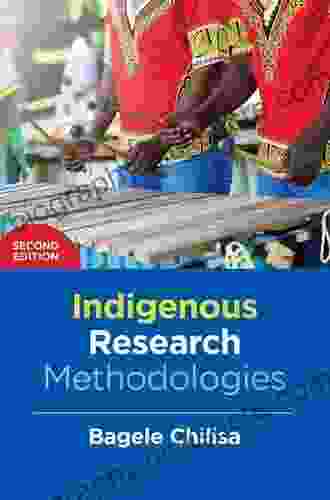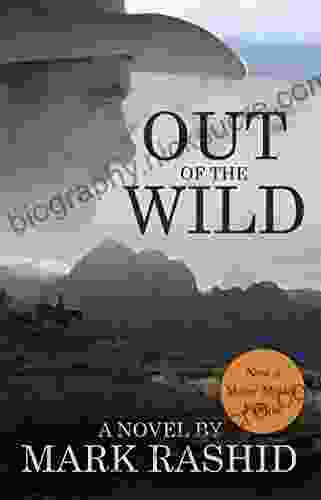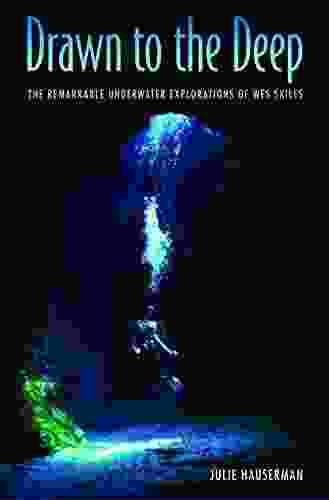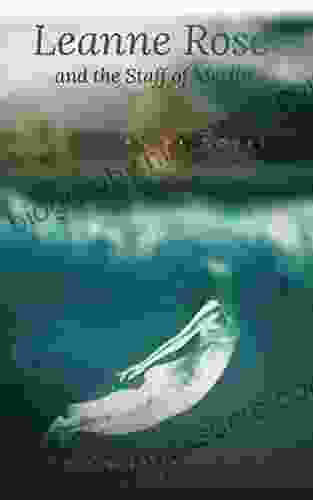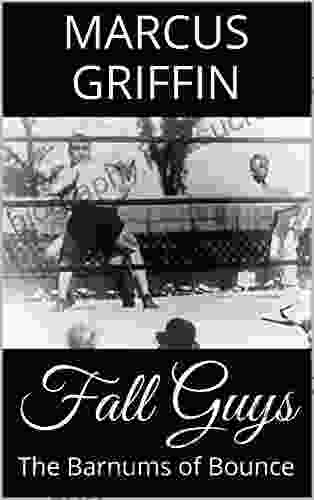Indigenous Research Methodologies: Decolonizing Knowledge Production with Bagele Chilisa

Indigenous research methodologies are a set of research methods and approaches that are developed by and for Indigenous peoples. They are based on the unique cultural, historical, and epistemological perspectives of Indigenous communities. Indigenous research methodologies challenge the dominance of Western research methods and epistemologies, and they aim to decolonize knowledge production by giving voice to Indigenous knowledge and perspectives.
One of the most important Indigenous research methodologies is Bagele Chilisa. Bagele Chilisa is a Zulu term that means "come together to talk." It is a participatory research methodology that involves the active participation of Indigenous community members in all stages of the research process. Bagele Chilisa is based on the principle of ubuntu, which is the African philosophy of human interconnectedness and interdependence.
The principles of Bagele Chilisa are as follows:
4.4 out of 5
| Language | : | English |
| File size | : | 26718 KB |
| Text-to-Speech | : | Enabled |
| Screen Reader | : | Supported |
| Enhanced typesetting | : | Enabled |
| Word Wise | : | Enabled |
| Print length | : | 392 pages |
- Respect for Indigenous knowledge and perspectives. Bagele Chilisa researchers recognize the value of Indigenous knowledge and perspectives, and they strive to incorporate them into all aspects of the research process.
- Participatory research. Bagele Chilisa researchers actively involve Indigenous community members in all stages of the research process, from the development of the research question to the dissemination of the findings.
- Community-based research. Bagele Chilisa research is conducted in partnership with Indigenous communities, and it is designed to benefit the community.
- Decolonizing knowledge production. Bagele Chilisa research challenges the dominance of Western research methods and epistemologies, and it aims to decolonize knowledge production by giving voice to Indigenous knowledge and perspectives.
Bagele Chilisa has a number of benefits, including:
- Increased understanding of Indigenous issues. Bagele Chilisa research can help to increase understanding of Indigenous issues, such as the history of colonialism, the impact of racism, and the challenges facing Indigenous communities.
- Improved decision-making. Bagele Chilisa research can help Indigenous communities to make better decisions about their future. By involving community members in the research process, Bagele Chilisa researchers can ensure that the research findings are relevant to the community's needs.
- Decolonizing knowledge production. Bagele Chilisa research challenges the dominance of Western research methods and epistemologies, and it aims to decolonize knowledge production by giving voice to Indigenous knowledge and perspectives.
There are many examples of Bagele Chilisa research that has been conducted in Indigenous communities around the world. Some examples include:
- A study of the impact of climate change on Indigenous communities in the Arctic.
- A study of the history of colonialism in a First Nations community in Canada.
- A study of the health and well-being of Indigenous youth in an urban setting.
- A study of the role of Indigenous knowledge in environmental management.
Indigenous research methodologies are a powerful tool for decolonizing knowledge production and empowering Indigenous communities. Bagele Chilisa is one of the most important Indigenous research methodologies, and it has a number of benefits, including increased understanding of Indigenous issues, improved decision-making, and decolonizing knowledge production.
4.4 out of 5
| Language | : | English |
| File size | : | 26718 KB |
| Text-to-Speech | : | Enabled |
| Screen Reader | : | Supported |
| Enhanced typesetting | : | Enabled |
| Word Wise | : | Enabled |
| Print length | : | 392 pages |
Do you want to contribute by writing guest posts on this blog?
Please contact us and send us a resume of previous articles that you have written.
 Fiction
Fiction Non Fiction
Non Fiction Romance
Romance Mystery
Mystery Thriller
Thriller SciFi
SciFi Fantasy
Fantasy Horror
Horror Biography
Biography Selfhelp
Selfhelp Business
Business History
History Classics
Classics Poetry
Poetry Childrens
Childrens Young Adult
Young Adult Educational
Educational Cooking
Cooking Travel
Travel Lifestyle
Lifestyle Spirituality
Spirituality Health
Health Fitness
Fitness Technology
Technology Science
Science Arts
Arts Crafts
Crafts DIY
DIY Gardening
Gardening Petcare
Petcare Rob Hutchings
Rob Hutchings Denton Salle
Denton Salle Ascencia
Ascencia S K Gupta
S K Gupta Lock Gareth
Lock Gareth J Michael Veron
J Michael Veron Meghan L Marsac
Meghan L Marsac Steve Biddulph
Steve Biddulph Paul Doiron
Paul Doiron Mark Twain
Mark Twain Suzanne Wylde
Suzanne Wylde Bobbie Faulkner
Bobbie Faulkner Frederick Douglass Opie
Frederick Douglass Opie T C Edge
T C Edge Barry Rhodes
Barry Rhodes Debbie M Schell
Debbie M Schell Gordon Witteveen
Gordon Witteveen Erica B Marcus
Erica B Marcus Barry Rabkin
Barry Rabkin Jenn Mcallister
Jenn Mcallister Yuki Mano
Yuki Mano Elizabeth George Speare
Elizabeth George Speare Burt L Standish
Burt L Standish Shayla Black
Shayla Black Kathleen Masters
Kathleen Masters Jean Smith
Jean Smith Jack Andraka
Jack Andraka Betty Stone
Betty Stone Matt Taddy
Matt Taddy Edith Grossman
Edith Grossman Ken Xiao
Ken Xiao Bryan Peterson
Bryan Peterson Eliza Reid
Eliza Reid Dan Golding
Dan Golding Tom Miller
Tom Miller Smart Reads
Smart Reads Catherine Shainberg
Catherine Shainberg Nancy E Willard
Nancy E Willard Daniel P Huerta
Daniel P Huerta Autumn Carpenter
Autumn Carpenter Ron Lemaster
Ron Lemaster Rhonda Belle
Rhonda Belle Timothy Pakron
Timothy Pakron Barbara Bassot
Barbara Bassot Martin Dugard
Martin Dugard Jessica F Shumway
Jessica F Shumway Barbara Taylor
Barbara Taylor Proper Education Group
Proper Education Group Cynthia Levinson
Cynthia Levinson William Wasserman
William Wasserman Julie L Spencer
Julie L Spencer Michael Palin
Michael Palin Brandon Royal
Brandon Royal Cindy Post Senning
Cindy Post Senning Erik J Brown
Erik J Brown James Kilgo
James Kilgo Glenna Mageau
Glenna Mageau Mina Lebitz
Mina Lebitz Ben Goldacre
Ben Goldacre Farley Mowat
Farley Mowat Mia Scotland
Mia Scotland Eddie Merrins
Eddie Merrins Joseph Alton M D
Joseph Alton M D R L Medina
R L Medina Scott Malthouse
Scott Malthouse Joanna Hunt
Joanna Hunt Siddhartha Rao
Siddhartha Rao Ben Sedley
Ben Sedley Patrick Sweeney
Patrick Sweeney Fred Mitchell
Fred Mitchell David A Bogart
David A Bogart Cary J Griffith
Cary J Griffith John G Robertson
John G Robertson Edward Lee
Edward Lee Nicholas Sparks
Nicholas Sparks Monta Z Briant
Monta Z Briant Vanessa Ogden Moss
Vanessa Ogden Moss Alastair Hannay
Alastair Hannay Beau Miles
Beau Miles Barry Friedman
Barry Friedman Scott Reed
Scott Reed Joseph Schmuller
Joseph Schmuller Mike Commito
Mike Commito Guy P Harrison
Guy P Harrison Barbara Kennard
Barbara Kennard Sharon Dukett
Sharon Dukett Clifford Herriot
Clifford Herriot Mitch Prinstein
Mitch Prinstein Robin Nixon
Robin Nixon Wanda Priday
Wanda Priday Craig Romano
Craig Romano Marco Grandis
Marco Grandis Linnea Dunne
Linnea Dunne Trish Kuffner
Trish Kuffner Robert Ardrey
Robert Ardrey Anthony Edwards
Anthony Edwards Richard Harris
Richard Harris Chase Hill
Chase Hill Blair Braverman
Blair Braverman Dustin Salomon
Dustin Salomon J Bruce Brackenridge
J Bruce Brackenridge David Starbuck Smith
David Starbuck Smith Lewis Thomas
Lewis Thomas Eric Franklin
Eric Franklin Luke Gilkerson
Luke Gilkerson Michelle Rigler
Michelle Rigler Janna Levin
Janna Levin David Thomas
David Thomas Joshua G Shifrin
Joshua G Shifrin Ryan Higa
Ryan Higa Stan Tekiela
Stan Tekiela Geert Hofstede
Geert Hofstede Lawrence Baldassaro
Lawrence Baldassaro Otto Scharmer
Otto Scharmer Ryan A Pedigo
Ryan A Pedigo Julie Buxbaum
Julie Buxbaum Christopher L Heuertz
Christopher L Heuertz Daniel M Koretz
Daniel M Koretz Barbara Illowsk
Barbara Illowsk Gay Robins
Gay Robins Valerie Pollmann R
Valerie Pollmann R Richard Scott
Richard Scott Gabriyell Sarom
Gabriyell Sarom Mark Ellyatt
Mark Ellyatt Fabien Clavel
Fabien Clavel Pearson Education
Pearson Education Stanislas Dehaene
Stanislas Dehaene Wayne B Chandler
Wayne B Chandler Scott Westerfeld
Scott Westerfeld Pat Shipman
Pat Shipman Rob Pope
Rob Pope Victor Seow
Victor Seow James Koeper
James Koeper Jeffrey Jensen Arnett
Jeffrey Jensen Arnett Nick Townsend
Nick Townsend Ray Comfort
Ray Comfort Max Marchi
Max Marchi Steven Rinella
Steven Rinella Janis Keyser
Janis Keyser Chris Cage
Chris Cage Shannon Reilly
Shannon Reilly Roanne Van Voorst
Roanne Van Voorst Maha Alkurdi
Maha Alkurdi Robert A Baruch Bush
Robert A Baruch Bush Steve Burrows
Steve Burrows Michael Wood
Michael Wood Beth Miller
Beth Miller Donald Frias
Donald Frias Graham Farmelo
Graham Farmelo Diane Cardwell
Diane Cardwell David Burch
David Burch Peter Martin
Peter Martin Thomas Bulfinch
Thomas Bulfinch Jonathan Kellerman
Jonathan Kellerman Kam Knight
Kam Knight Jen Houcek
Jen Houcek Jamie Margolin
Jamie Margolin Peter Wacht
Peter Wacht Marc Loy
Marc Loy Kit Yates
Kit Yates Nick Neely
Nick Neely David Beaupre
David Beaupre Catherine J Allen
Catherine J Allen Rick Joyner
Rick Joyner Mark Kurlansky
Mark Kurlansky Mike Massie
Mike Massie Craig Martin
Craig Martin Thomas French
Thomas French Mike Swedenberg
Mike Swedenberg Yuval Noah Harari
Yuval Noah Harari Mike Loades
Mike Loades Joshua Hammer
Joshua Hammer Boy Scouts Of America
Boy Scouts Of America Robert Hogan
Robert Hogan Daniel S Lobel Phd
Daniel S Lobel Phd Sam Cowen
Sam Cowen Vanessa Garbin
Vanessa Garbin Graham R Gibbs
Graham R Gibbs Stephen K Sanderson
Stephen K Sanderson Leia Stone
Leia Stone Stephen J Bavolek
Stephen J Bavolek John Whitman
John Whitman David Abram
David Abram Chiara Sparks
Chiara Sparks Clayton King
Clayton King Tami Anastasia
Tami Anastasia Samantha Fitts
Samantha Fitts Emily Chappell
Emily Chappell Bernard Marr
Bernard Marr Bridget Flynn Walker Phd
Bridget Flynn Walker Phd Kate Darling
Kate Darling Candice Davie
Candice Davie Kara Goucher
Kara Goucher Tara Brach
Tara Brach Titus M Kennedy
Titus M Kennedy Jim Fay
Jim Fay Sara Shepard
Sara Shepard Jutta Schickore
Jutta Schickore Ben Collins
Ben Collins Mike Allison
Mike Allison Linda Carroll
Linda Carroll Ian Leslie
Ian Leslie James Syhabout
James Syhabout Edwin R Sherman
Edwin R Sherman Kate Williams
Kate Williams Carlo Collodi
Carlo Collodi Toby A H Wilkinson
Toby A H Wilkinson Barry Burd
Barry Burd Sam Kean
Sam Kean Eugene V Resnick
Eugene V Resnick Hunbatz Men
Hunbatz Men Richard J Dewhurst
Richard J Dewhurst Temple West
Temple West Benita Bensch
Benita Bensch Baruch Englard
Baruch Englard John Lister Kaye
John Lister Kaye Charles Buist
Charles Buist Eric Engle
Eric Engle Richard Weissbourd
Richard Weissbourd Mykel Hawke
Mykel Hawke Nicole Martin
Nicole Martin Jeff Belanger
Jeff Belanger Daniel T Willingham
Daniel T Willingham Mike Stanton
Mike Stanton Karen Bush
Karen Bush Noah Brown
Noah Brown F William Lawvere
F William Lawvere Alexandra Andrews
Alexandra Andrews Jeff Alt
Jeff Alt Ron Avery
Ron Avery William Byers
William Byers Tori Day
Tori Day Marshall Jon Fisher
Marshall Jon Fisher Conor Nolan
Conor Nolan Jenna Helland
Jenna Helland Barbara Russell
Barbara Russell Susan Nance
Susan Nance Bill Milliken
Bill Milliken Holger Schutkowski
Holger Schutkowski Isabel Fonseca
Isabel Fonseca James C Radcliffe
James C Radcliffe Rebecca Solnit
Rebecca Solnit Leslie Stager
Leslie Stager Daniel J Barrett
Daniel J Barrett David Aretha
David Aretha Christopher Taylor Ma Lmft
Christopher Taylor Ma Lmft Jennifer Traig
Jennifer Traig Jenny Chandler
Jenny Chandler Mark Mayfield
Mark Mayfield Thomas Lumley
Thomas Lumley James M Collins
James M Collins Barbara Ann Kipfer
Barbara Ann Kipfer James Duthie
James Duthie Babu The Panda
Babu The Panda Susan Scott
Susan Scott Malcolm Hebron
Malcolm Hebron Sam Nadler
Sam Nadler Jay Abramson
Jay Abramson John Henry Phillips
John Henry Phillips Massimo Cossu Nicola Pirina
Massimo Cossu Nicola Pirina Craig Lambert
Craig Lambert Arnold G Nelson
Arnold G Nelson Ben Povlow
Ben Povlow S E Hinton
S E Hinton Jean Illsley Clarke
Jean Illsley Clarke Robin Knox Johnston
Robin Knox Johnston Visual Arts
Visual Arts Peter K Tyson
Peter K Tyson Mark Young
Mark Young Chris Eberhart
Chris Eberhart Crystal Duffy
Crystal Duffy Ronald Wheeler
Ronald Wheeler Mick Conefrey
Mick Conefrey Erica Schultz
Erica Schultz Prince Asare
Prince Asare Richard Meadows
Richard Meadows Dacher Keltner
Dacher Keltner W Scott Elliot
W Scott Elliot Mike High
Mike High Rowan Jacobsen
Rowan Jacobsen Tim Marshall
Tim Marshall Grey Owl
Grey Owl Sergei Urban
Sergei Urban Jack Newman
Jack Newman Jennifer Pharr Davis
Jennifer Pharr Davis Colleen Alexander Roberts
Colleen Alexander Roberts Donald R Gallo
Donald R Gallo Dave Rearwin
Dave Rearwin V B Alekseev
V B Alekseev Cara Koscinski
Cara Koscinski Barbara Mertz
Barbara Mertz Kindle Edition
Kindle Edition Scott Mactavish
Scott Mactavish John C Norcross
John C Norcross John Aldridge
John Aldridge Editors Of Southern Living Magazine
Editors Of Southern Living Magazine T H White
T H White Gordon H Chang
Gordon H Chang Violet Moller
Violet Moller Suzanne Leonhard
Suzanne Leonhard Rachelle Zukerman
Rachelle Zukerman Larry Dane Brimner
Larry Dane Brimner Breanna Hayse
Breanna Hayse Paul Van Lierop
Paul Van Lierop Reprint Edition Kindle Edition
Reprint Edition Kindle Edition Barzin Pakandam
Barzin Pakandam Richard Chun
Richard Chun Spencer Wells
Spencer Wells Cait Stevenson
Cait Stevenson Dan R Lynch
Dan R Lynch Simon Spurrier
Simon Spurrier Susan Dennard
Susan Dennard Achille Rubini
Achille Rubini Dr Michael P Masters
Dr Michael P Masters Beebe Bahrami
Beebe Bahrami John Quick
John Quick Bonnie Tsui
Bonnie Tsui Nichole Carpenter
Nichole Carpenter Charles Soule
Charles Soule David Jamieson Bolder
David Jamieson Bolder Nicholas Wolterstorff
Nicholas Wolterstorff Leah Cullis
Leah Cullis Jesse Liberty
Jesse Liberty Kenton Kroker
Kenton Kroker Nina Manning
Nina Manning Joseph Epes Brown
Joseph Epes Brown Laura Pavlov
Laura Pavlov Ping Li
Ping Li Basu Shanker
Basu Shanker Mark Rashid
Mark Rashid Charles River Editors
Charles River Editors Joanne Glenn
Joanne Glenn John D Barrow
John D Barrow Sam Harris
Sam Harris Nadine Hays Pisani
Nadine Hays Pisani Jessica Smartt
Jessica Smartt Ellen Lewin
Ellen Lewin Charlie Shamp
Charlie Shamp Margaret Owen
Margaret Owen Oliver T Spedding
Oliver T Spedding Bruce Pascoe
Bruce Pascoe Molly E Lee
Molly E Lee Jade Barrett
Jade Barrett Marie Rutkoski
Marie Rutkoski John Kimantas
John Kimantas John H Mcwhorter
John H Mcwhorter Justin Sirois
Justin Sirois Kyle Butler
Kyle Butler Barry Glassner
Barry Glassner Helen Fisher
Helen Fisher Barbara Neiman
Barbara Neiman Richard H Immerman
Richard H Immerman Elizabeth Lockwood
Elizabeth Lockwood Cheryl Erwin
Cheryl Erwin Bb
Bb Barry Johnston
Barry Johnston P J Agness
P J Agness Khurshed Batliwala
Khurshed Batliwala Martin Sternstein
Martin Sternstein Reelav Patel
Reelav Patel St Louis Post Dispatch
St Louis Post Dispatch James Duggan
James Duggan Rachel Dash
Rachel Dash Scarlett Thomas
Scarlett Thomas Hongyu Guo
Hongyu Guo Ryan T White
Ryan T White Steven Hawthorne
Steven Hawthorne Mark H Newman
Mark H Newman Catherine M Cameron
Catherine M Cameron John Sandford
John Sandford Chuck Missler
Chuck Missler Bashir Hosseini Jafari
Bashir Hosseini Jafari Jake Anderson
Jake Anderson Dustin Hansen
Dustin Hansen Jane Hardwicke Collings
Jane Hardwicke Collings Eric Leiser
Eric Leiser Vincent Bossley
Vincent Bossley Hill Gates
Hill Gates Laura Ingalls Wilder
Laura Ingalls Wilder Farzana Nayani
Farzana Nayani Muhammad Zulqarnain
Muhammad Zulqarnain Helen Kara
Helen Kara David Klausmeyer
David Klausmeyer Rachel Smith
Rachel Smith Melissa Haag
Melissa Haag Lew Freedman
Lew Freedman Deanna Roy
Deanna Roy Elliott Vandruff
Elliott Vandruff Sport Hour
Sport Hour Gary Lincoff
Gary Lincoff Roy Porter
Roy Porter J C Cervantes
J C Cervantes Monica Hesse
Monica Hesse Tim Ingold
Tim Ingold Chris Mooney
Chris Mooney Lynn Rosen
Lynn Rosen Danny Staple
Danny Staple Dr Faith G Harper
Dr Faith G Harper John J Robinson
John J Robinson Gary Soto
Gary Soto Leon Mccarron
Leon Mccarron Stefan Ecks
Stefan Ecks Rob Rains
Rob Rains Leonard M Adkins
Leonard M Adkins Macauley Lord
Macauley Lord Charlotte Booth
Charlotte Booth Jaymin Eve
Jaymin Eve David Taylor
David Taylor Dave Karczynski
Dave Karczynski Gerald Beaudry
Gerald Beaudry Brian Switek
Brian Switek Barbara Rogoff
Barbara Rogoff James Randi
James Randi Sean Mcindoe
Sean Mcindoe Bill Mckibben
Bill Mckibben Barry J Kemp
Barry J Kemp Charlotte Browne
Charlotte Browne Rebecca Rupp
Rebecca Rupp Allan V Horwitz
Allan V Horwitz Dr Craig Malkin
Dr Craig Malkin Print Replica Kindle Edition
Print Replica Kindle Edition Diane Musho Hamilton
Diane Musho Hamilton Howard Zinn
Howard Zinn C R Hallpike
C R Hallpike Julian I Graubart
Julian I Graubart Diane Yancey
Diane Yancey Pavla Kesslerova
Pavla Kesslerova Chris Bennett
Chris Bennett George Macdonald
George Macdonald Brian Gilbert
Brian Gilbert Barbara Gastel
Barbara Gastel Lynn Mann
Lynn Mann Bob Holtzman
Bob Holtzman Jude Currivan
Jude Currivan Jill Brown
Jill Brown Robin Mcmillan
Robin Mcmillan Becca Anderson
Becca Anderson Bagele Chilisa
Bagele Chilisa Jim Wharton
Jim Wharton Ellen Notbohm
Ellen Notbohm Randy Baker
Randy Baker Lily Collins
Lily Collins Shmuel Peerless
Shmuel Peerless Mackenzi Lee
Mackenzi Lee Emma Walker
Emma Walker Buddy Levy
Buddy Levy Mary A Fristad
Mary A Fristad Jeremy Sweet
Jeremy Sweet Brad Burns
Brad Burns Christine Kenneally
Christine Kenneally Geoffrey Finch
Geoffrey Finch Jayanti Tambe
Jayanti Tambe Jonathan Bergmann
Jonathan Bergmann Hollis Lance Liebman
Hollis Lance Liebman Emma Brockes
Emma Brockes Chadd Vanzanten
Chadd Vanzanten Steven Bell
Steven Bell Arny Alberts
Arny Alberts Jane Butel
Jane Butel John Garrity
John Garrity W Hamilton Gibson
W Hamilton Gibson Jennifer Estep
Jennifer Estep Rachel Morgan
Rachel Morgan Sampson Davis
Sampson Davis Kara Tippetts
Kara Tippetts Linda Welters
Linda Welters Casey Watson
Casey Watson Ralph Galeano
Ralph Galeano Harvey Wittenberg
Harvey Wittenberg David Cockburn
David Cockburn William H Frey
William H Frey Stephanie Fritz
Stephanie Fritz Constanze Niedermaier
Constanze Niedermaier Melissa Gomes
Melissa Gomes Basudeb Bhatta
Basudeb Bhatta Percy Boomer
Percy Boomer Debra Kilby
Debra Kilby Yang Kuang
Yang Kuang Ernie Morton
Ernie Morton Kenneth Wilgus Phd
Kenneth Wilgus Phd Master Gamer
Master Gamer Beau Bradbury
Beau Bradbury Philip Maffetone
Philip Maffetone Nick Bollettieri
Nick Bollettieri
Light bulbAdvertise smarter! Our strategic ad space ensures maximum exposure. Reserve your spot today!
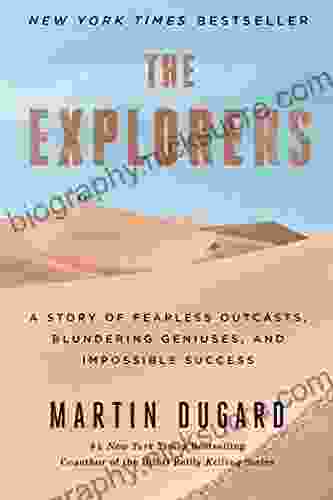
 David PetersonThe Thrilling Tale of Fearless Outcasts, Blundering Geniuses, and the Triumph...
David PetersonThe Thrilling Tale of Fearless Outcasts, Blundering Geniuses, and the Triumph... Isaac AsimovFollow ·14.5k
Isaac AsimovFollow ·14.5k Terry BellFollow ·6.7k
Terry BellFollow ·6.7k Jackson HayesFollow ·18.5k
Jackson HayesFollow ·18.5k Henry Wadsworth LongfellowFollow ·10.8k
Henry Wadsworth LongfellowFollow ·10.8k Evan HayesFollow ·19.6k
Evan HayesFollow ·19.6k Robert HeinleinFollow ·10.1k
Robert HeinleinFollow ·10.1k Arthur C. ClarkeFollow ·7.8k
Arthur C. ClarkeFollow ·7.8k Terence NelsonFollow ·18.7k
Terence NelsonFollow ·18.7k
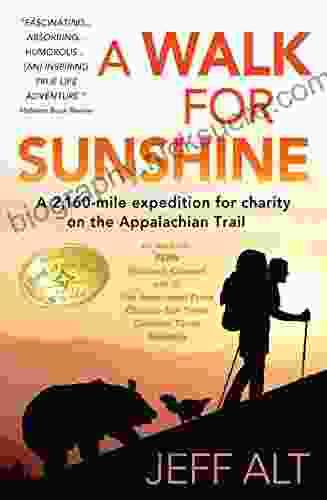
 Israel Bell
Israel BellEmbark on an Epic 160-Mile Expedition for Charity on the...
Prepare yourself for an...
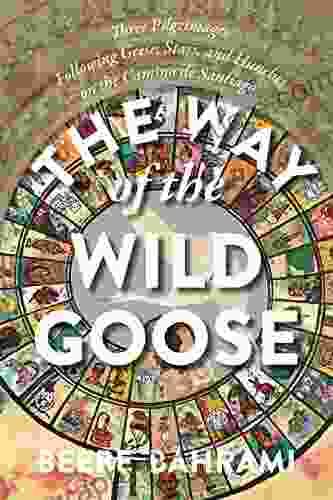
 Josh Carter
Josh CarterThe Way of the Wild Goose: A Journey of Embodied Wisdom...
The Way of the Wild Goose is an ancient...

 Allen Parker
Allen ParkerMastering the Art of Bean Fly Casting: A Comprehensive...
Fly fishing,...
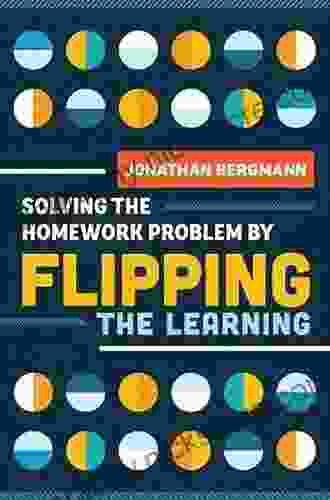
 Aaron Brooks
Aaron BrooksSolving the Homework Problem by Flipping the Learning
What is flipped...

 Fletcher Mitchell
Fletcher MitchellThe Jane Butel Library: A Renewed Source of Knowledge and...
The Jane Butel...
4.4 out of 5
| Language | : | English |
| File size | : | 26718 KB |
| Text-to-Speech | : | Enabled |
| Screen Reader | : | Supported |
| Enhanced typesetting | : | Enabled |
| Word Wise | : | Enabled |
| Print length | : | 392 pages |


